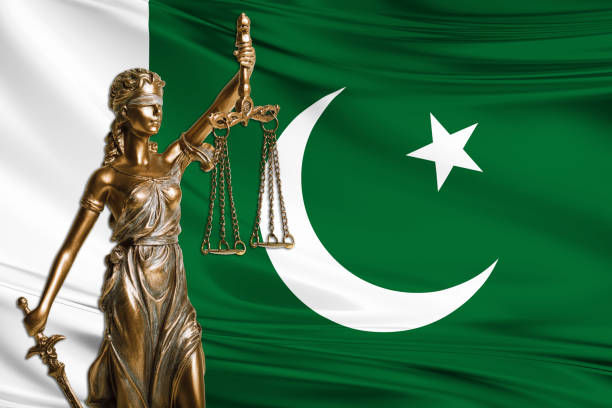In Pakistan, navigating legal matters can be overwhelming due to the complex judicial system, cultural norms, and sometimes inaccessible legal services. Whether it’s a family dispute, a property issue, or criminal defense, finding a reliable lawyer is essential to ensure justice is served. This guide aims to help you make informed decisions when choosing a lawyer in Pakistan.
Understand Your Legal Needs
The first step is identifying the nature of your legal problem. Pakistan’s legal system has specialized lawyers for different issues:
- Family Lawyer: For divorce, custody battles, and inheritance disputes.
- Criminal Lawyer: For criminal cases like theft, assault, or fraud.
- Civil Lawyer: For property disputes, contracts, and consumer rights issues.
- Labor Lawyer: For employment-related matters like wrongful termination or workplace harassment.
- Tax Lawyer: To address taxation and financial matters.
- Immigration Lawyer: For visa issues, asylum, or residency.
Understanding your specific need will save time and ensure you consult the right expert.
Ask for Recommendations
In Pakistan, word of mouth is one of the most trusted ways to find professionals. Ask for referrals from:
- Family and Friends: Many people in your network may have dealt with similar legal issues and can recommend a lawyer.
- Community Elders or Religious Leaders: In smaller towns or rural areas, elders or religious figures often know reputable lawyers in the area.
- Local Businesses: Especially for corporate or labor-related issues, business owners often have connections with experienced lawyers.
Research Online
The internet is becoming a valuable tool in Pakistan for finding professional services. You can:
- Use Legal Directories: Websites like the Pakistan Bar Council or local law firm directories list registered lawyers.
- Check Reviews: Google, Facebook, or law-related forums often feature client reviews.
- Social Media Groups: Join legal advice groups or community pages to get recommendations and hear about others’ experiences.
- Consult Legal Websites: Some websites offer free consultations or list lawyers based on their specialty.
Verify Qualifications
It’s crucial to ensure your lawyer is qualified and registered with the relevant authorities. Here’s how:
Pakistan Bar Council: Every practicing lawyer must be registered. You can verify their credentials on the PBC website or through provincial bar councils.
Educational Background: A lawyer with an LLB degree from a recognized university or additional certifications (like an LLM) is preferable.
Specializations: Lawyers with experience in a specific field of law are often more effective.
Meet Potential Lawyers
Schedule consultations with two or three lawyers before making a final decision. During the meeting, ask:
- How many cases similar to yours they have handled.
- Their approach to resolving legal matters.
- Their success rate and experience in the relevant court (e.g., civil courts, high courts, family courts).
- Their expected timeline for resolving your case.
Assess Communication Skills
In Pakistan, clear communication is essential due to the complexity of legal jargon and cultural nuances. Your lawyer should:
- Listen to your concerns and explain legal terms in simple language.
- Keep you updated on the progress of your case.
- Be approachable and responsive, especially during emergencies.
Avoid lawyers who dismiss your questions or fail to provide clear answers.
Consider Location
Hiring a lawyer near your location is beneficial for several reasons:
- Convenience: Frequent meetings may be required to discuss case details or prepare documents.
- Local Knowledge: Lawyers practicing in your area are more familiar with local judges, court procedures, and legal practices.
- For example, if you’re in Karachi, hiring a lawyer familiar with Karachi’s civil courts will be more effective than hiring someone from Lahore.
Check Experience with Pakistani Law
The legal landscape in Pakistan includes unique elements such as:
- Sharia Law: Some cases, like inheritance, are influenced by Islamic principles.
- Labor Laws: Governed by provincial laws, such as the Punjab Industrial Relations Act or the Sindh Payment of Wages Act.
- Customary Laws: Especially in rural areas, some disputes are resolved using Jirgas or Panchayats, though these aren’t always legally binding.
- A good lawyer understands these nuances and uses them to your advantage.
Understand the Cost
Legal fees in Pakistan vary depending on the lawyer’s experience and location:
- Fixed Fee: Common for routine matters like document preparation.
- Hourly Fee: Charged for consultations or complex cases.
- Contingency Fee: In some cases, lawyers take a percentage of the settlement amount.
- Always ask for a written agreement detailing the fee structure to avoid disputes later. Negotiate upfront, as fees in Pakistan are often flexible.
Red Flags to Watch For
Be cautious if a lawyer:
- Guarantees Results: No lawyer can promise a specific outcome in a case.
- Lacks Transparency: Refuses to explain procedures or share case updates.
- Charges Unreasonably Low Fees: This could indicate inexperience or lack of professionalism.
- Misses Deadlines: Failing to meet court deadlines can severely impact your case.

